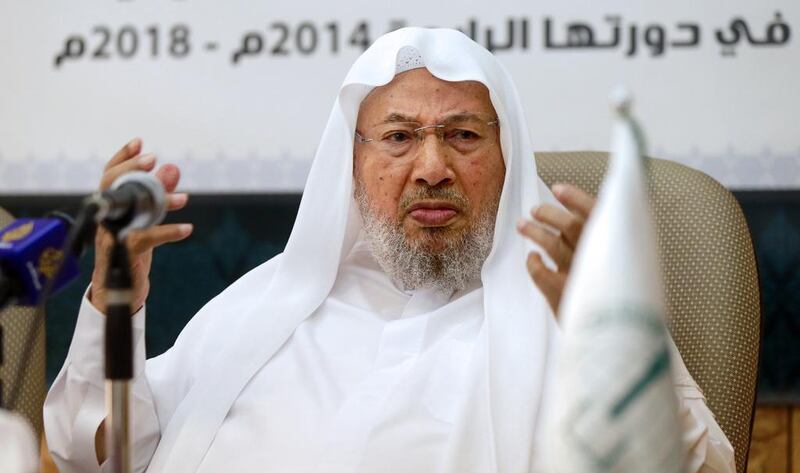A new documentary will focus on controversial fatwas issued by the first Egyptian on the terror list announced by Saudi Arabia, Egypt, the UAE and Bahrain.
Yusuf Al Qaradawi is a Doha-based Egyptian Islamic theologian and chairman of the International Union of Muslim Scholars. He joins the 59 individuals and 12 institutions that the quartet have designated as financing terrorist organisations and receiving support from Qatar.
The four countries cut diplomatic and transport ties with Qatar in June last year over allegations it supports extremist groups and has interfered in the affairs of other countries.
_______________
Read more:
Sheffield terror raid at Qatar-linked centre
Qatar’s links to global terror groups remain deep, new report finds
_______________
Airing on January 17, Al Arabiya's show Death Making, which looks at the issue of global terrorism, will scrutinise a number of fatwas issued by Qaradawi. Some people considered several of them as extreme and violent.
Qaradawi has had a long connection to the Muslim Brotherhood, although he says he is no longer a member.
In 1997, Qaradawi's affiliation with the Muslim Brotherhood led to his expulsion from Egypt, a country where this organisation was at the time prohibited.
In October 2004, according to Saudi Arabia's newspaper Arab News, over 2,500 Muslim intellectuals from 23 countries signed a petition addressed to the UN to highlight the use of religion for incitement to violence. Qaradawi was mentioned among "the sheikhs of death," as the signatories defined those who manipulate religion to incite violence.
Qaradawi dismissed this as baseless and slanderous.
The sheikh has been banned from entering the US since 1999 and in 2008 the UK denied Qaradawi a visa, citing fears that his preaching “could foster inter-community violence.” In March 2012, France blocked the entry of extremists in the country after the Toulouse attacks, and specifically mentioned Qaradawi as one of those who was barred.






